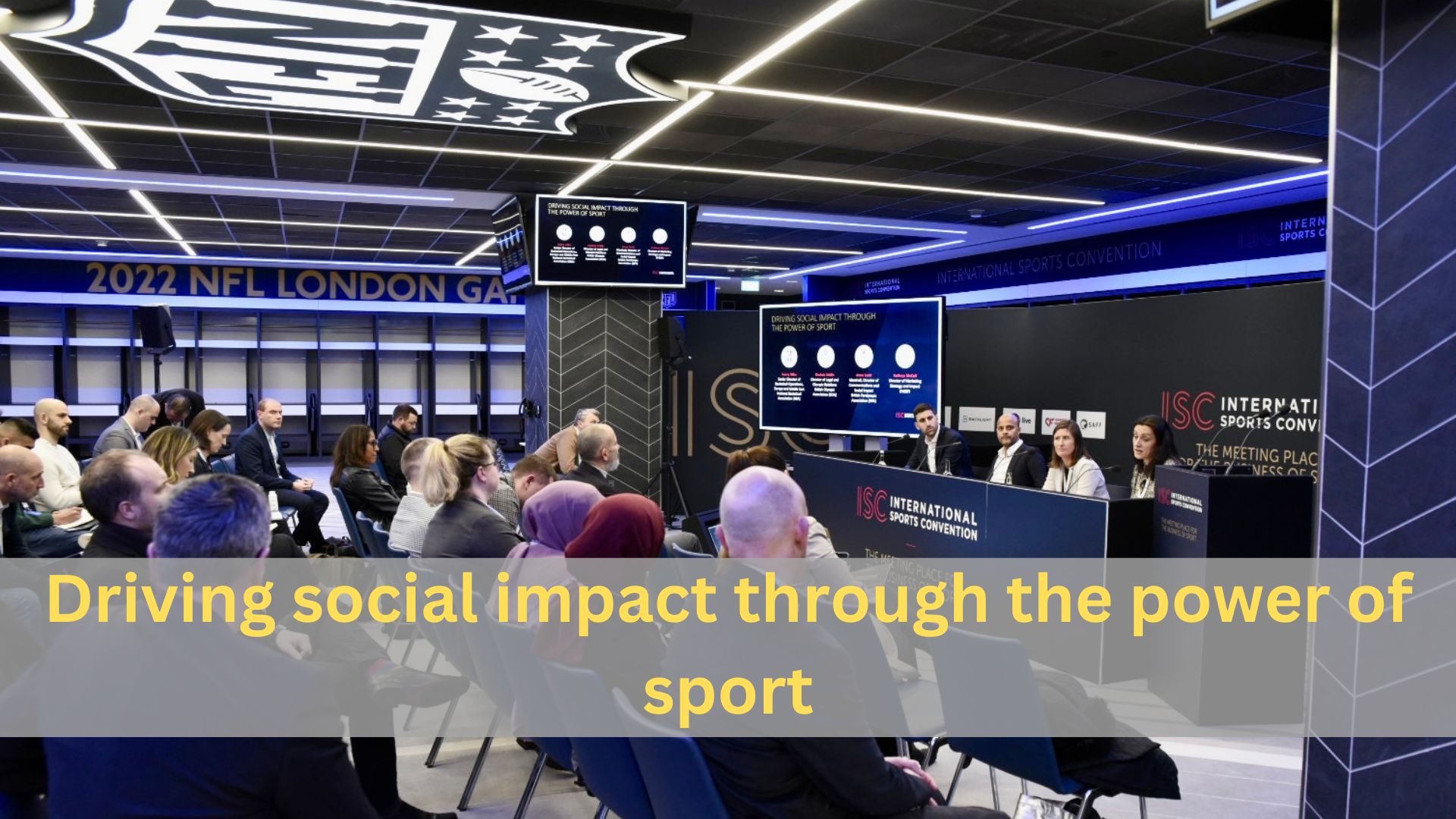Driving social impact through the power of sport
The wider economic and social climate is driving an increased strategic focus on social impact programmes, that’s the message from a series of social experts who spoke at the International Sports Convention today.
Kathryn McColl, Director of Marketing, Strategy and Impact at EVERFI led the thought-provoking discussion that unpicked how a series of sports organisations are tackling social impact, which has come under increasing strategic scrutiny post-covid.
As Shahab Uddin, Director of Legal and Olympic Relations at the BOA, said: “Our previous focus was on one-off events with no dedicated long-term approach. We have just launched a new strategy focused on physical and mental wellbeing as it was clear to us in a post-covid that this is where we can make the most impact.”
Recent research from Nielsen shows that the number of sports fans whose interest in brands that have strong social values has increased by 75% from pre to post covid pandemic. In a similar vein, 69% of 18–24-year-olds are now classed as brand-driven buyers whose purchasing is guided by the purpose and social.
The brand and commercial benefits of social impact programmes have long been key drivers of activity. Now, with issues surrounding physical activity, mental health, education and environmental wellbeing on the rise, many sport organisations have re-appraised their approach and are in a unique position to generate change.
The NBA is a good example and Henry Utku, Senior Director of Basketball Operations, Europe and Middle East for the company explained that a lot of the league’s work is now “dictated by wider cultural forces,” such as the Black Lives Matters movement.
The global outpouring following the murder of George Floyd, sparked the formation of the NBA Foundation which focuses on driving economic opportunity and empowerment in the Black community.
The role of players and ambassadors has also become increasingly important given the power and reach of their platforms and their relatability. Uddin asserts that “Athletes provide an authentic voice on these subjects and have become more comfortable talking about such issues.”
The NBA has taken this a step further by launching an off-court schools programme – NBA in the Classroom – in collaboration with EVERFI that provides downloadable, flexible, curriculum-linked teaching resources for use in PE, PSHE/Health and Wellbeing, careers and/or enrichment and personal development.
The NBA used players to deliver key messages within the programme knowing that pupils would be far more engaged with a video featuring LeBron James than a corporate voice. In the first year over 100,000 pupils have taken part.
Sponsors are also increasingly invested in the delivery of impactful campaigns and programmes. Anna Scott-Marshall, Director of Communications & Social Impact at the British Paralympic Association, referenced the organisation’s latest campaign with Toyota.
“The Every Body Moves initiative empowers disabled people to become active in a way that is right for them. A key facet of this campaign is the modernised method of delivery which is crucial in engaging young people,” Scott-Marshall said.
As more sponsors turn their attention to social impact as a way to activate their partnerships, the scrutiny on ROI has increased and the panellists all referenced the need to increase focus on measurement and evaluation.
Scott-Marshall said: “We are at the start of the journey when it comes to measuring success. Funders and partners help push us to be more accurate with our targets beyond pure participation. We now look at more metrics, as opposed to the bigger the number the better. It’s also important to remember that success doesn’t have to look like a big number.”
Shahab Uddin agreed and asserted that “making sure measurement is embedded to track actual outcomes” was a key priority moving forwards. “Sponsors are now demanding hard data as to how a project or programme is moving the dial and changing behaviours.”
The movement of traffic is clear: sport, its sponsors and its athletes have a huge role to play in driving social impact and that role has never been more critical.

